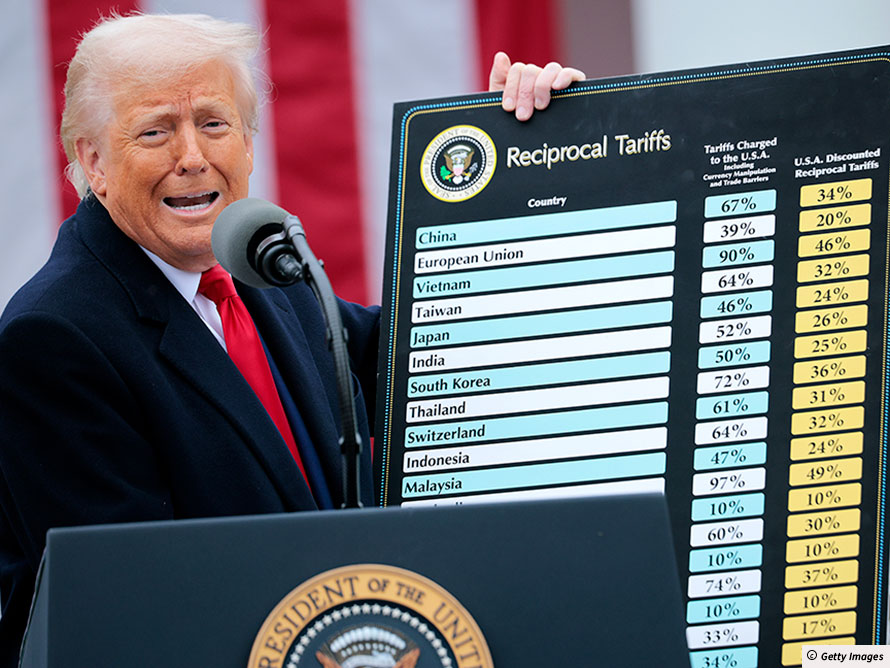Will ‘Liberation day’ transform the world? Donald Trump has fired the starting gun on what he says will be a new economic age. Some think he is just shooting himself in the foot.
Trump slaps new taxes on global trade
 Score settling: Speaking from the White House Rose Garden yesterday, President Trump unveiled a 10% tariff on UK goods and 20% on EU goods in what the BBC called "a watershed moment for global trade". Britain's tariff rate appears to be the lowest of those imposed by the US.
Score settling: Speaking from the White House Rose Garden yesterday, President Trump unveiled a 10% tariff on UK goods and 20% on EU goods in what the BBC called "a watershed moment for global trade". Britain's tariff rate appears to be the lowest of those imposed by the US. Glossary
Wall Street Crash - A major stock market crash in the United States which began in late October 1929.
Nixon Shock - Economic actions taken by President Richard Nixon in 1971 that eventually led to the collapse of the Bretton Woods economic system.
Tariffs - A form of tax on imports.
Gambit - An act or remark that is calculated to gain an advantage.
Wall Street - A street in New York City's financial district. The term "Wall Street" is now used to discuss US financial markets as a whole.
Investment - When you put money into a project or idea in the hope it will be successful in the future.
Capriciousness - The quality of being characterised by or liable to sudden, unpredictable changes in attitude or behaviour.

